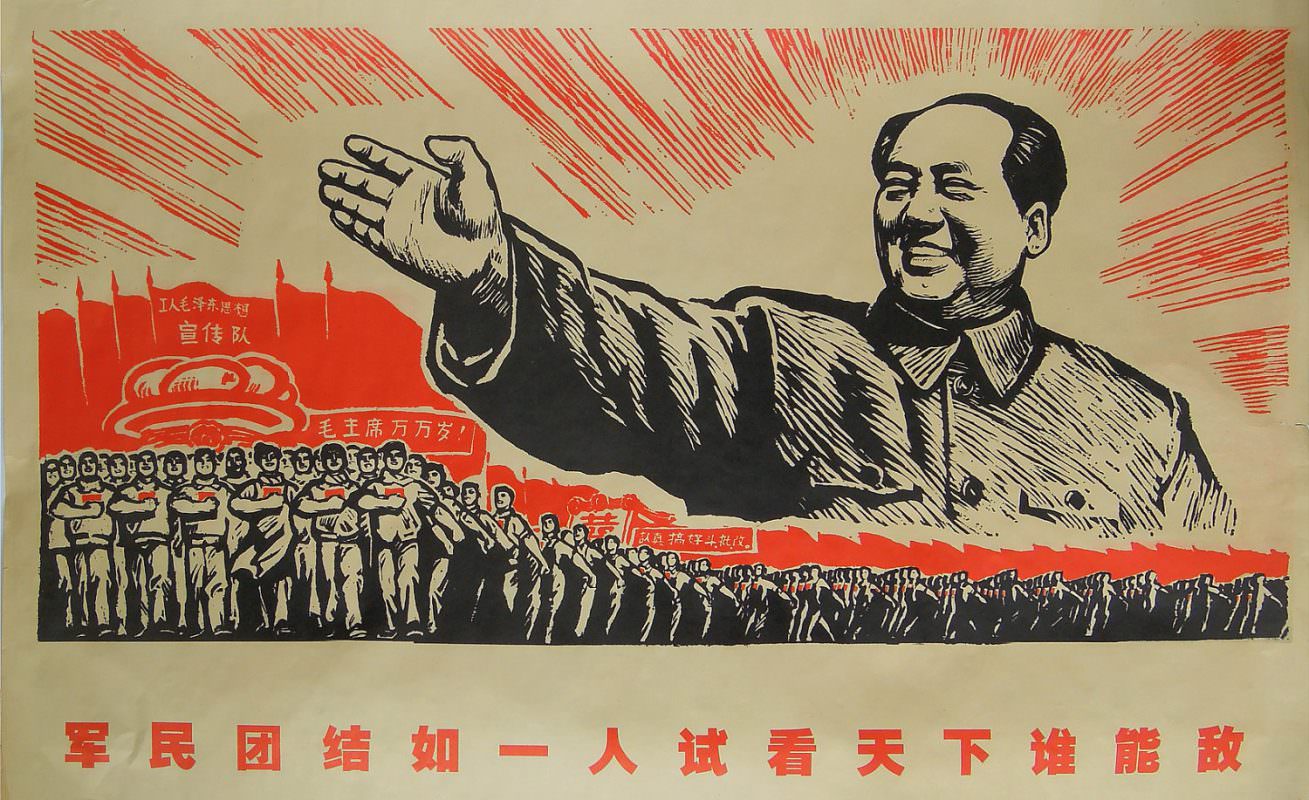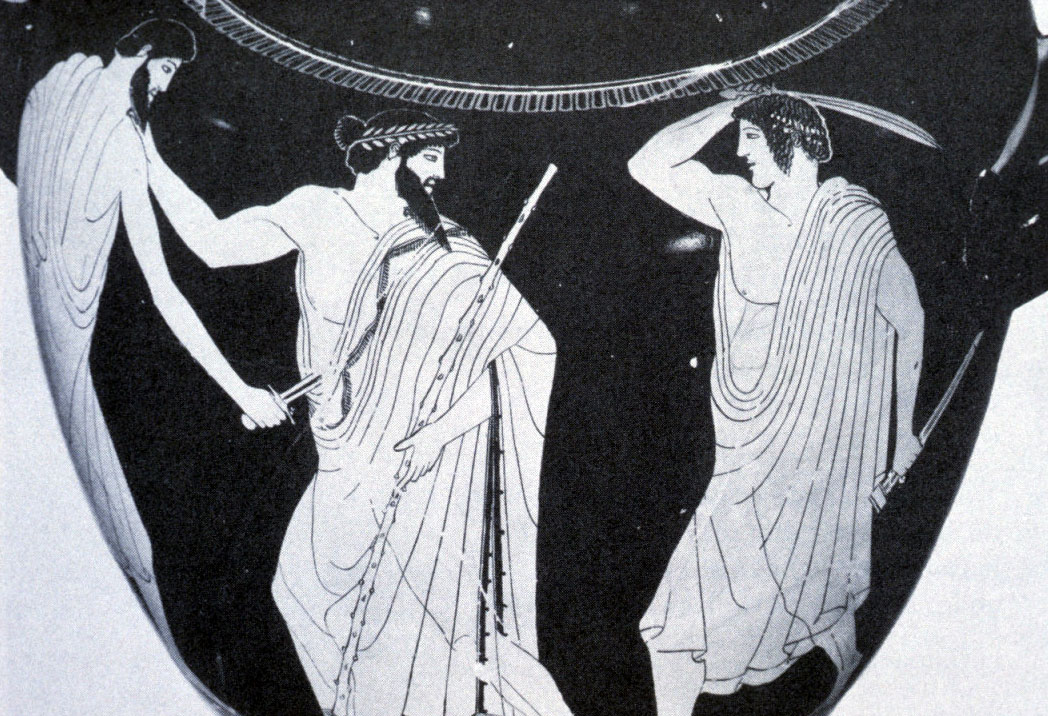Art and Culture
The Truth About Propaganda
The term propaganda has its origins in the 17th century efforts of the Catholic Church to propagate its views and stem the rise of Protestantism.

“If you can’t find the sucker at the poker table,” goes the saying, “you’re it.” Extrapolating that axiom to the present political moment, we may say: “If you don’t hear much about propaganda, that’s what you’re hearing.”
The term propaganda has its origins in the 17th century efforts of the Catholic Church to propagate its views and stem the rise of Protestantism. It has gone through various permutations since. By the time Hitler was dead and the Cold War underway, the word had lost its Godly associations and became a pejorative, connoting mostly the self-serving lies of nefarious tyrannical regimes. Yet propaganda properly understood is non-discriminating, inclusive with regard to its users, contents, and ends.
The Merriam-Webster dictionary defines propaganda as:
“The spreading of ideas, information, or rumor for the purpose of helping or injuring an institution, a cause, or a person.” Propaganda, in other words, is manipulative persuasion in the service of an agenda. The word itself doesn’t imply truth or falsehood in the content or pass judgment on the agenda.
Understood as such, propaganda is not the sole providence of one side or another in the political (or any other) arena. It is a tool that may be used by both sides. (Indeed, assigning the propaganda label to the opposite camp in a conflict is itself a common propaganda move). Moreover propaganda may be used to achieve ‘good’ ends. This does not make it any less problematic, just as assassinating Hitler would not have made assassination as an approach to solving ideological disagreements any less problematic.

Propaganda traffics mostly in emotions, and not just negative ones. Propagandists appeal to our fears but also to our courage, our hatred and our love. The fact that propaganda is at heart an emotional manipulation also does not mean that our emotions and ‘emotionality’ are bad. It means that our emotional system can be manipulated to destructive ends.
The antidote to the process of propaganda is the process of finding factual truth. The best way we have for doing that is through scientific inquiry, which referees competing claims systematically based on evidence. The propagandist process subordinates the facts to an agenda, even at the price of distorting or ignoring the facts altogether. For science, factual truth is the agenda; it follows the evidence wherever it might lead. Anything counter-factual, anything that obscures or distorts truth is anathema to the scientific project. Propaganda knows how to sell a product. Science knows how to shop smart.
This tension between propaganda and science speaks to a duality that undergirds our internal architecture: We feel and we think. The young child is emotional; she cries and recoils when she’s scared, or when she sees fear in her mother’s face. But she’s also a scientist, doggedly trying to figure out how stuff works.
Both systems are useful for survival, yet the processes and results they yield are often in competition with each other. And the competition is rigged. Emotional reaction precedes reasoned analysis, like biting must have preceded the evolution of teeth. We are more likely to act on a feeling without much thought than to act on a thought without much feeling. To quote E.O. Wilson: “People would rather believe than know.” The propagandist’s appeal to emotion is therefore bound to find a more ready reception than the scientist’s appeal to reason. Emotional reactions easily drown out and overtake intellectual analysis and fact-based reasoning. That’s the psychological edge exploited by the propagandist.
While they may seem to be uniquely of this moment, concerns over propaganda undermining American society are not new. Perhaps the most famous case in point dates back to 1937 when — with the political unrest of the depression era still gripping the nation—growing concerns about the American public’s vulnerability to extremist ideologies prompted the liberal philanthropist Edward Filene to fund a proposal by Clyde Miller of Columbia University to create the Institute for Propaganda Analysis (IPA). The IPA defined propaganda as, “expression of opinion or action by individuals or groups deliberately designed to influence opinions or actions of other individuals or groups with reference to predetermined ends.” The institute then set out to “help the public gain a clear understanding of present-day conditions” by teaching Americans how to “recognize propaganda, to analyze it, and to appraise it.”
Savvy propagandists, Miller and his colleagues realized, draw their power in large part from the fact that their targets are not aware that propaganda is being used on them. In this way, propaganda is not a magic show but a con. A mind that is not trained to detect and neutralize propaganda is a gullible mind, ripe for the swindle.
That same year, the Institute published a manifesto, How to Detect Propaganda, detailing “the seven common propaganda devices” of which Americans should become aware, the better to counter nefarious propagandists at home and abroad. Here they are:
Name calling
“Labeling,” in today’s lingo; this basic technique amounts to Propaganda 101 and its origins reach all the way back to preschool. If you want to hurt someone, diminish their standing, intimidate them, or provoke them into ill-considered action, call them a bad name: Crooked. Tiny Hands. Bad names, according to IPA, “have ruined reputations, stirred men and women to outstanding accomplishments, sent others to prison cells, and made men mad enough to enter battle and slaughter their fellowmen.”

Glittering generalities
This technique takes ‘big virtue’ words to which many people are emotionally connected and attaches them to the ends favored by the propagandist. Make America Great. Hope and Change. However, these kinds of words mean different things to different people and can be used in different ways.
“When someone talks to us about democracy, we immediately think of our own definite ideas about democracy, the ideas we learned at home, at school, and in church. Our first and natural reaction is to assume that the speaker is using the word in our sense, that he believes as we do on this important subject. This lowers our ‘sales resistance’ and makes us far less suspicious than we ought to be when the speaker begins telling us the things ‘the United States must do to preserve democracy.’”
Transfer
Transfer is a device by which the propagandist seeks to transfer onto him or his cause the esteem and respect we have for someone else (celebrity endorsements, anyone?). It’s a way to Bask in someone’s Reflected Glory (BIRGing, in social psychology parlance), to have another’s legitimacy confer legitimacy onto the propagandist.
“For example, most of us respect and revere our church and our nation. If the propagandist succeeds in getting church or nation to approve a campaign in behalf of some program, he thereby transfers its authority, sanction, and prestige to that program. Thus, we may accept something which otherwise we might reject.”
Testimonials
This technique is used frequently in marketing and advertising. Propagandists will use testimonials to legitimize an idea or position. This technique makes use of the fact that we more easily attach to specific personal narratives than to general facts and dry statistics. The personal narrative, after all, is the format by which we experience ourselves. ‘Anne Frank’ is more accessible and comprehensible than ‘six million’ and thus carries more emotional resonance.
Plain folks

This technique takes advantage of the human ability, and desire, to identify with like others.
“This is a device used by politicians, labor leaders, businessmen, and even by ministers and educators to win our confidence by appearing to be people like ourselves…Businessmen often are ‘plain folks’ with the factory hands.”
Presidential candidates who eat at McDonald’s, kiss babies, visit Iowa, or wear a baseball cap are not plain folks; they are merely using the ‘plain folks’ technique.
Card stacking
Card Stacking is what we may these days call “hyping.” It’s full court PR press.
“The propagandist employs all the arts of deception to win our support for himself, his group, nation, race, policy, practice, belief, or ideal. He stacks the cards against the truth. He uses under-emphasis and over-emphasis to dodge issues and evade facts. He resorts to lies, censorship and distortion. He omits facts. He offers false testimony. He creates a smoke screen of clamor by raising a new issue when he wants an embarrassing matter forgotten. He draws a red herring across the trail to confuse and divert those in quest of facts he does not want revealed. He makes the unreal appear real and the real appear unreal. He lets half-truth masquerade as truth.”

Bandwagon
This is in essence an appeal to our tribal impulse, which is our deepest. Human beings are herd animals. We survive and thrive best in stable, well-organized groups. We derive much of our identity and strength from our affiliations. We want to belong and are terrified of social rejection and isolation. Thus we are deeply conformist by design, and are strongly susceptible to normative pressures. (Nonconformists by and large do not opt out of the group to go it alone; they merely switch affiliations from one group to another). That’s why you are more likely to like something on Facebook if it already has many likes; more likely to have sex if you think all your peers are doing it; more likely to vote if you believe all your neighbors have voted. Group affiliation at once enlarges our sense of self and overrides it. Inside a large group we can turn off our individual moral compass, and shed the burdens of individual responsibility and identity, becoming in effect invisible and with that, free.
To mobilize large groups, propagandists often appeal to already existing groups and coherent identities.

“The propagandist…directs his appeal to groups held together already by common ties, ties of nationality, religion, race, sex, vocation…. With the aid of all the other propaganda devices, all of the artifices of flattery are used to harness the fears and hatreds, prejudices and biases, convictions and ideals common to a group. Thus is emotion made to push and pull us as members of a group onto a Band Wagon.”
By 1941, the IPA had ceased its activities, yet its animating concerns, and the principles it outlined, are as urgent and relevant today as they were then. Once you know of the techniques, you see that their use is pervasive, and that it’s not limited to one side or the other in the political arena.
Hence, the biggest underlying problem with propaganda is not who is using it, but the extent to which it’s used to the diminishment or exclusion of reason, science, fact and truth. That is to say, if our camp wins by using propaganda, it will be no victory at all, because it means the people are gullible, and are vulnerable to the next skilled propagandist, who may well come from the other side. Only a people educated about the process of propaganda and adamant about not letting it override the processes of science will be truly civilized, liberated, and safe.
In the college classes I teach I often look to dramatize this point about the value of reason, evidence and science. I ask students to imagine that one of their peers is found murdered in the dorms. Everyone is emotionally distraught about the murder, which is good because it motivates an investigative effort. A suspect is immediately located (let’s call him suspect A). He’s a widely loathed rival of the deceased. Everyone on campus believes he’s the killer; they expect him to have been the killer; they even hope he’s the one, so he’d be removed from campus. Alas, as the detectives begin to collect actual evidence, the preponderance of it points clearly to suspect B, a well-liked friend of the deceased. “Who should go to prison?” I ask my students. “Is it suspect A, the one we all believed, expected, and hoped would be the killer, or suspect B, who is the killer by all the evidence?”
At the end of the day, I think we want to live in a society where suspect B ends up in prison.
In our justice system, as in our political system, we can expect that advocates for differing sides will use — and be subjected to — emotional manipulation to predetermined ends. But if that’s all there is, if the system either lacks or disavows a mechanism to obtain the evidence, analyze it rationally, and disseminate it clearly, then before long we will have neither justice nor politics to speak of.






